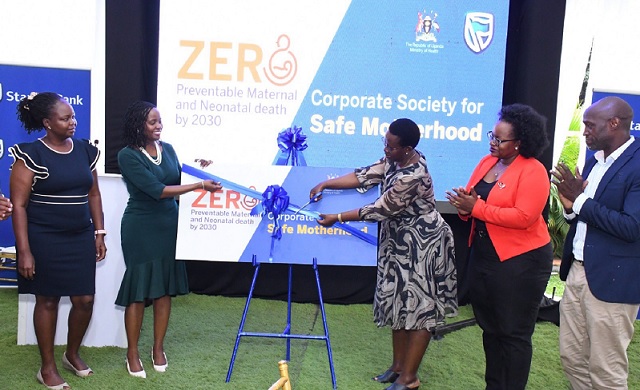
Kampala, Uganda | THE INDEPENDENT | The Ministry of Health has laid down the case for the need for a National Health Insurance Scheme for Uganda, saying it is the only way all Ugandans would be able to access affordable and quality health services.
The Permanent Secretary, Diana Atwine, says her ministry is overwhelmed by the needs, and yet there is a very limited resource envelope, as well as a complicated government bureaucracy that makes service delivery hard.
The establishment of the health-for-all scheme has been debated for more than 10 years but so far a common position between legislators, the executive, health service, and insurance providers as development partners has not been achieved.
A new Bill is now with the Cabinet and it is hoped it will be approved in a few weeks for presentation to parliament, according to the Insurance Regulatory Authority.
Dr. Atwine told corporate organizations that have come together to support maternal health in the country, that even in countries where the government sinks billions of dollars into hospitals, the patients still pay for the services, but through the national health insurance scheme.
Talking about funding for maternal and other health segments, Dr Atwine castigated Ugandans who ‘bash health workers and the ministry for poor services’, without knowing what they go through.
She gave an example of a hospital in the UK that delivers on average three babies a day, but gets an annual budget of 600 million pounds or about 2.2 trillion shillings, just about the total annual budget of Uganda’s health sector.
In comparison, Kawempe National Referral Hospital, which delivers 60 to 100 babies a day was allocated 3.7 million dollars (14 billion shillings.)
Government hospitals deliver about 1.4 million babies every year, which Atwine says is a big number compared to the number and sizes of the facilities.
Atwine added that apart from the little money, the process of procurement is too long and complicated, giving the example of the money and items that were donated by the public in 2020/21 towards the fight against Covid-19. She said this time the money from this project will not be handled by the ministry to avoid delays.
This morning we’ve officially launched the Corporate Society for Safe motherhood. This journey that started close to 4 years ago as a partnership with @stanbicug to support @KawempeNRH has now yielded into a platform of more than 50 corporate institutions and Companies. pic.twitter.com/tGc8OEdsg4
— Dr. Diana Atwine (@DianaAtwine) May 12, 2023
Atwiine said she usually moves around health centres impromptu and gets them in their usual situations. She said that she, therefore, knows whatever the needs are and what should be done, only that there are limited resources.
Atwine appealed to the public not to be too harsh to the health workers because, much as they have a duty to serve, they operate in a very difficult environment because of the limited resources.
Under the Corporate Society for Safe Motherhood (CMS), at least 30 corporate private organizations have so far been rallied by Stanbic Bank to mobilize resources for improvement of the health services through selected projects, in partnership with the ministry.
Stanbic Chief Executive Officer, Anne Juuko appealed to the entire public for support to the sector, with anything that they have, instead of only criticizing the services.
She says that while a lot needs to be done, the sector should be hailed for what it has been able to achieve, including renovating some health facilities under hard financial conditions.
The CMS partnership will be implemented in four selected “high volume” facilities with key infrastructure and equipment gaps.
The facilities were identified by the ministry as high-priority areas to benefit from the CMS.
Dr. John Paul Bagala, the Technical – Safe Motherhood at the ministry said there are several projects that include upgrading Mukono Hospital into a national referral hospital, to reduce on the referrals to Kawempe Hospital.
Others are the construction of the theatre and lab table and face-lifting of Pakwach Health Centre 4, at a planned total cost of 1.13 billion shillings.
They also plan to construct a theatre and buy equipment at Busanza Health Centre IV in Kisoro District at a cost of 910 million Shillings, and the expansion of the General Hospital.
*****
URN
 The Independent Uganda: You get the Truth we Pay the Price
The Independent Uganda: You get the Truth we Pay the Price


